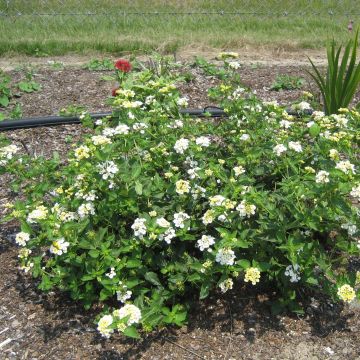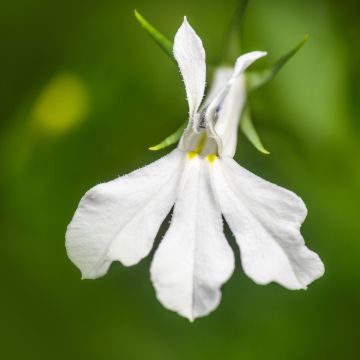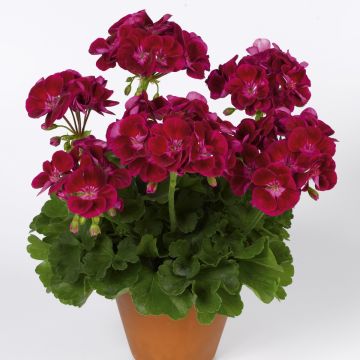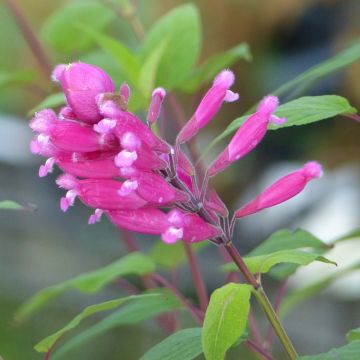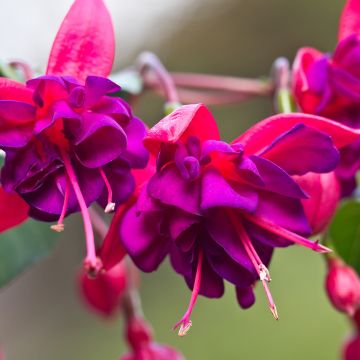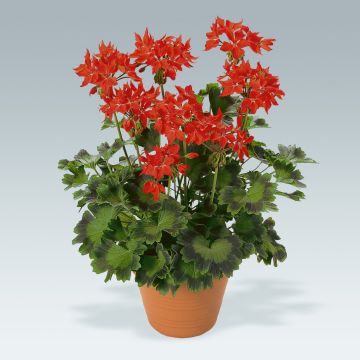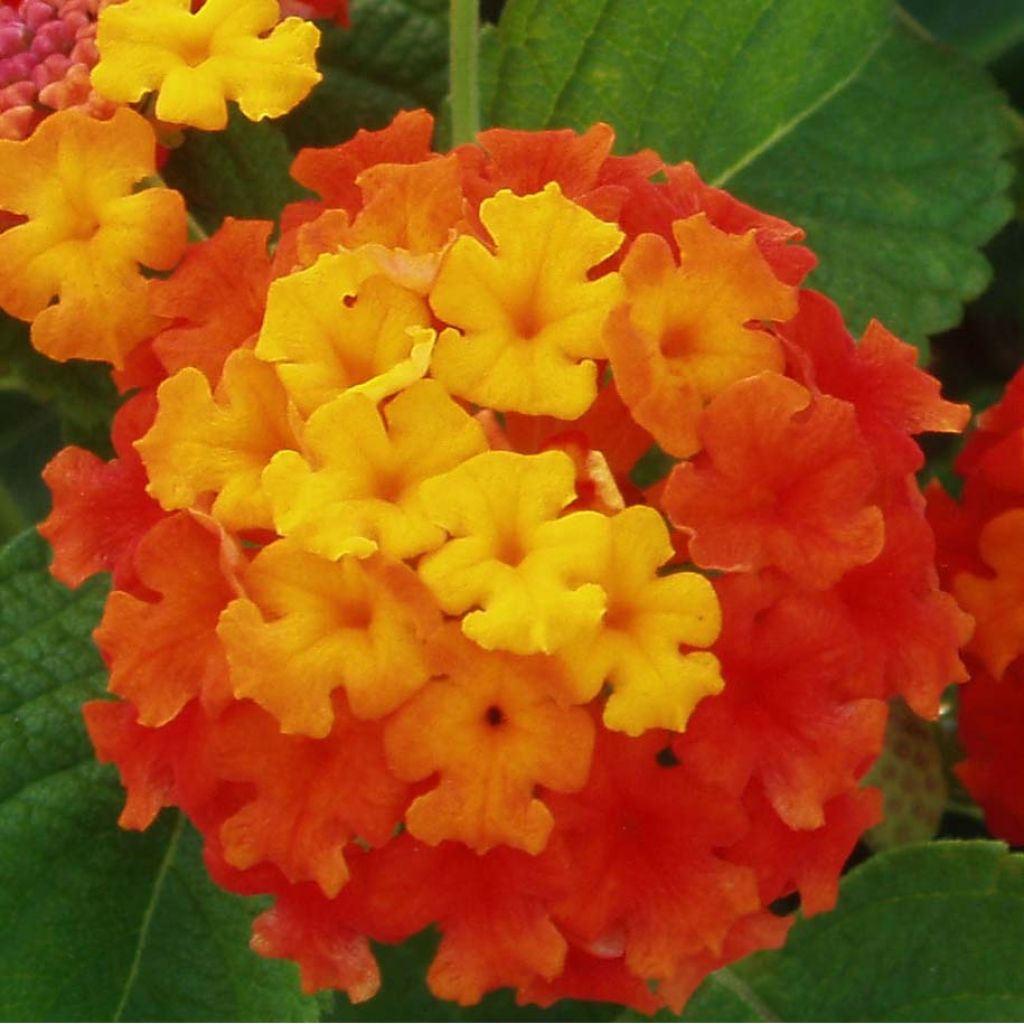

Lantana Camara Simon rouge
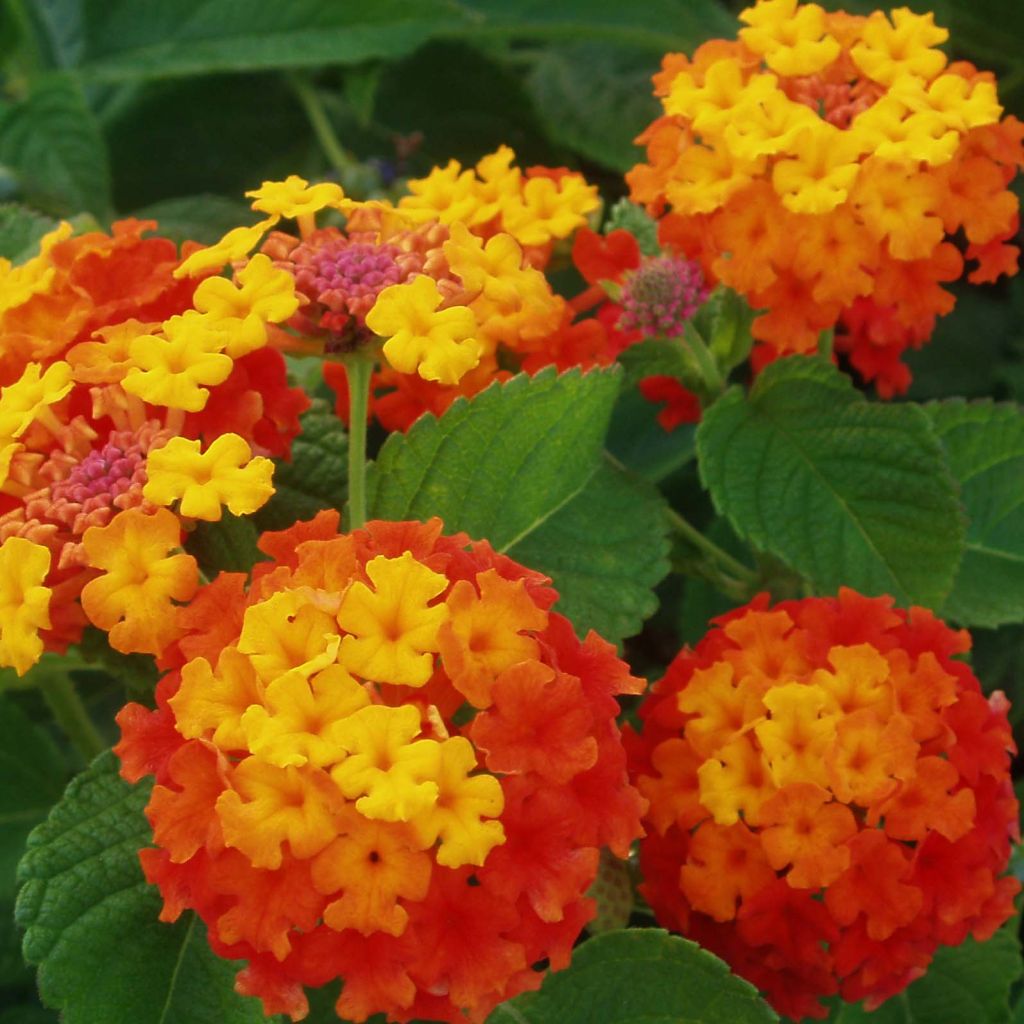

Lantana Camara Simon rouge
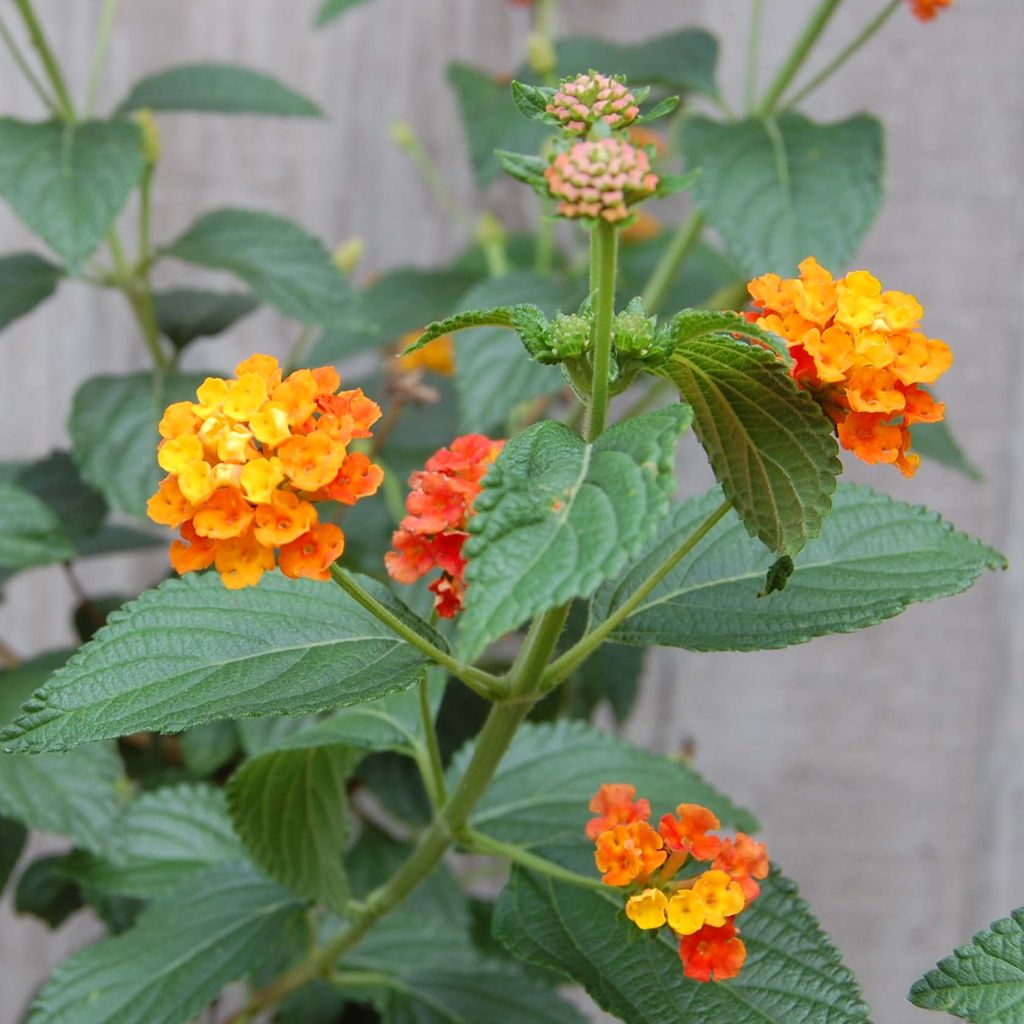

Lantana Camara Simon rouge
Lantana camara Evita Red imp. - West Indian Lantana
Lantana camara Evita Red imp.
Common Lantana, Wild Sage, Shrub Verbena, Red Sage
This isn't the first time I've ordered from this site. I've already recommended it to my friends and family because the packaging is excellent—nothing can move around—and the plants are high quality.
Seb, 09/05/2025
Special offer!
Receive a €20 voucher for any order over €90 (excluding delivery costs, credit notes, and plastic-free options)!
1- Add your favorite plants to your cart.
2- Once you have reached €90, confirm your order (you can even choose the delivery date!).
3- As soon as your order is shipped, you will receive an email containing your voucher code, valid for 3 months (90 days).
Your voucher is unique and can only be used once, for any order with a minimum value of €20, excluding delivery costs.
Can be combined with other current offers, non-divisible and non-refundable.
Home or relay delivery (depending on size and destination)
Schedule delivery date,
and select date in basket
This plant carries a 6 months recovery warranty
More information
We guarantee the quality of our plants for a full growing cycle, and will replace at our expense any plant that fails to recover under normal climatic and planting conditions.
Would this plant suit my garden?
Set up your Plantfit profile →
Description
Lantana 'Evita Red imp.', with its red and yellow bicoloured flower balls, is perhaps the most flamboyant variety in the 'Evita' series. This Lantana is also distinguished by its compact habit and floribundance, two assets that make it an excellent plant for decorating terraces and balconies. This shrub blooms tirelessly throughout the summer, on beautiful dark green foliage that undoubtedly enhances the vibrant colors of the flowering, which is visited by multicoloured butterflies. A frost-sensitive plant, Lantana camara is most often grown as an annual outside of our regions spared from heavy frosts.
Lantana camara, also known as Lantana or common Lantana, is a small shrub in the Verbenaceae family, related to Verbenas. Its origins are in a wide area including Mexico, Central America, the Greater Antilles, the Bahamas, Colombia and Venezuela. It has naturalized in many subtropical regions where it is considered invasive. Not demanding regarding soil, water-efficient, extremely floriferous, this lantana has only one flaw: its lack of hardiness, down to about -6°C/-7°C (19.4°F) for short periods of time.
The 'Evita Red' cultivar is a horticultural selection chosen for its small size and brightly coloured flowering. Fast-growing, this well-branched shrub reaches about 40cm (16in) in all directions in one season. Its quadrangular section branches bear a few hooked spines and leaves 4 to 6cm (2in) long, leathery, rough and aromatic when crushed, with finely toothed margins. They are dark green, strongly veined, and theoretically persist in winter if there is no frost. Its particularly long flowering period extends from June-July to October. In the leaf axils, rounded bouquets or panicles of flowers, 4 to 5cm (2in) in diameter, emerge. The small tubular-based flowers gradually change from yellow to orange-red, creating an interesting bicolour effect within the bouquet between the centre flowers, a warm yellow, and those on the periphery, a reddish-orange turning to vermilion red.
Lantana camara 'Evita Red Imp.' likes sheltered, warm and sunny positions, it can overwinter outside in mild climates. Elsewhere, it is an excellent terrace plant that should be stored in a cold or temperate greenhouse, protected from heavy frosts during winter. While it is a spectacle on its own, this Lantana pairs well with the blue or white flowers of salvias, lavenders, garden Verbenas, and catmints. It is also a very good plant for a dry and waterless garden, when winters are mild.
Green plants from 4 to 8cm (2 to 3in) in plug plants of 5 small plugs, 2.8cm (1in) in diameter and 4cm (2in) high. Our plants are at least eight weeks old and strong enough to be planted in the ground.
Note: Please be aware that our young plug plants are professional products intended for experienced gardeners. Upon receipt, transplant and store them in sheltered locations (conservatory, greenhouse, cold frame...) at a temperature above 14°C (57.2°F) for a few weeks before planting them outdoors once the risk of frost has definitively passed.
Report an error about the product description
Flowering
Foliage
Plant habit
Botanical data
Lantana
camara
Evita Red imp.
Verbenaceae
Common Lantana, Wild Sage, Shrub Verbena, Red Sage
Cultivar or hybrid
Other Lantana
View all →Planting and care
Planting period
Intended location
Care
-
, onOrder confirmed
Reply from on Promesse de fleurs
Similar products
Haven't found what you were looking for?
Hardiness is the lowest winter temperature a plant can endure without suffering serious damage or even dying. However, hardiness is affected by location (a sheltered area, such as a patio), protection (winter cover) and soil type (hardiness is improved by well-drained soil).

Photo Sharing Terms & Conditions
In order to encourage gardeners to interact and share their experiences, Promesse de fleurs offers various media enabling content to be uploaded onto its Site - in particular via the ‘Photo sharing’ module.
The User agrees to refrain from:
- Posting any content that is illegal, prejudicial, insulting, racist, inciteful to hatred, revisionist, contrary to public decency, that infringes on privacy or on the privacy rights of third parties, in particular the publicity rights of persons and goods, intellectual property rights, or the right to privacy.
- Submitting content on behalf of a third party;
- Impersonate the identity of a third party and/or publish any personal information about a third party;
In general, the User undertakes to refrain from any unethical behaviour.
All Content (in particular text, comments, files, images, photos, videos, creative works, etc.), which may be subject to property or intellectual property rights, image or other private rights, shall remain the property of the User, subject to the limited rights granted by the terms of the licence granted by Promesse de fleurs as stated below. Users are at liberty to publish or not to publish such Content on the Site, notably via the ‘Photo Sharing’ facility, and accept that this Content shall be made public and freely accessible, notably on the Internet.
Users further acknowledge, undertake to have ,and guarantee that they hold all necessary rights and permissions to publish such material on the Site, in particular with regard to the legislation in force pertaining to any privacy, property, intellectual property, image, or contractual rights, or rights of any other nature. By publishing such Content on the Site, Users acknowledge accepting full liability as publishers of the Content within the meaning of the law, and grant Promesse de fleurs, free of charge, an inclusive, worldwide licence for the said Content for the entire duration of its publication, including all reproduction, representation, up/downloading, displaying, performing, transmission, and storage rights.
Users also grant permission for their name to be linked to the Content and accept that this link may not always be made available.
By engaging in posting material, Users consent to their Content becoming automatically accessible on the Internet, in particular on other sites and/or blogs and/or web pages of the Promesse de fleurs site, including in particular social pages and the Promesse de fleurs catalogue.
Users may secure the removal of entrusted content free of charge by issuing a simple request via our contact form.
The flowering period indicated on our website applies to countries and regions located in USDA zone 8 (France, the United Kingdom, Ireland, the Netherlands, etc.)
It will vary according to where you live:
- In zones 9 to 10 (Italy, Spain, Greece, etc.), flowering will occur about 2 to 4 weeks earlier.
- In zones 6 to 7 (Germany, Poland, Slovenia, and lower mountainous regions), flowering will be delayed by 2 to 3 weeks.
- In zone 5 (Central Europe, Scandinavia), blooming will be delayed by 3 to 5 weeks.
In temperate climates, pruning of spring-flowering shrubs (forsythia, spireas, etc.) should be done just after flowering.
Pruning of summer-flowering shrubs (Indian Lilac, Perovskia, etc.) can be done in winter or spring.
In cold regions as well as with frost-sensitive plants, avoid pruning too early when severe frosts may still occur.
The planting period indicated on our website applies to countries and regions located in USDA zone 8 (France, United Kingdom, Ireland, Netherlands).
It will vary according to where you live:
- In Mediterranean zones (Marseille, Madrid, Milan, etc.), autumn and winter are the best planting periods.
- In continental zones (Strasbourg, Munich, Vienna, etc.), delay planting by 2 to 3 weeks in spring and bring it forward by 2 to 4 weeks in autumn.
- In mountainous regions (the Alps, Pyrenees, Carpathians, etc.), it is best to plant in late spring (May-June) or late summer (August-September).
The harvesting period indicated on our website applies to countries and regions in USDA zone 8 (France, England, Ireland, the Netherlands).
In colder areas (Scandinavia, Poland, Austria...) fruit and vegetable harvests are likely to be delayed by 3-4 weeks.
In warmer areas (Italy, Spain, Greece, etc.), harvesting will probably take place earlier, depending on weather conditions.
The sowing periods indicated on our website apply to countries and regions within USDA Zone 8 (France, UK, Ireland, Netherlands).
In colder areas (Scandinavia, Poland, Austria...), delay any outdoor sowing by 3-4 weeks, or sow under glass.
In warmer climes (Italy, Spain, Greece, etc.), bring outdoor sowing forward by a few weeks.






























